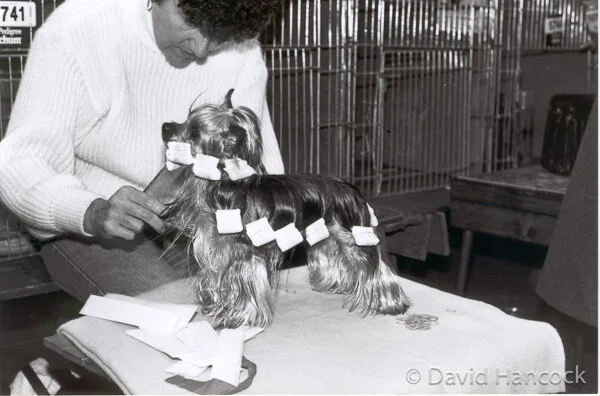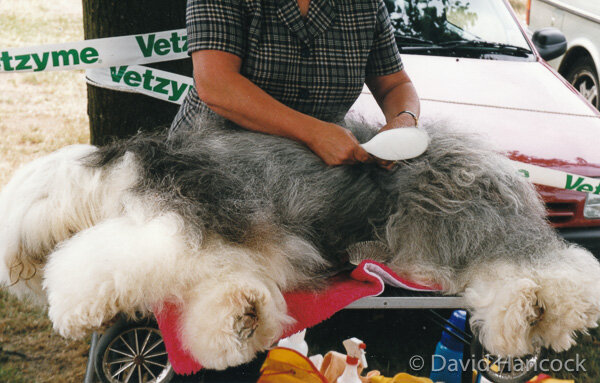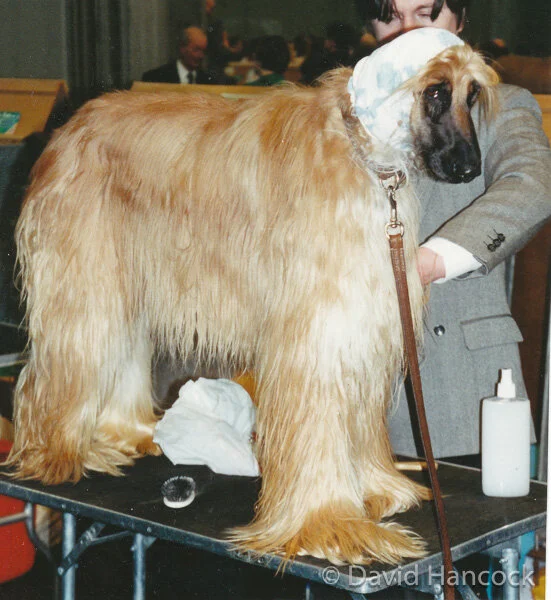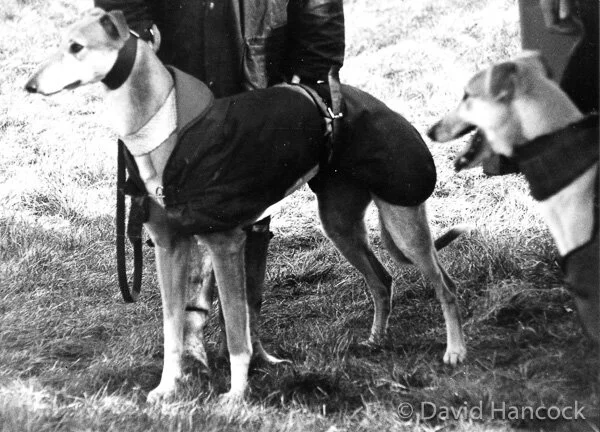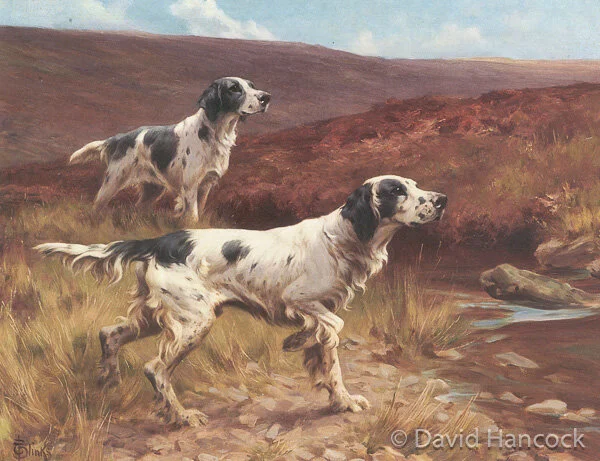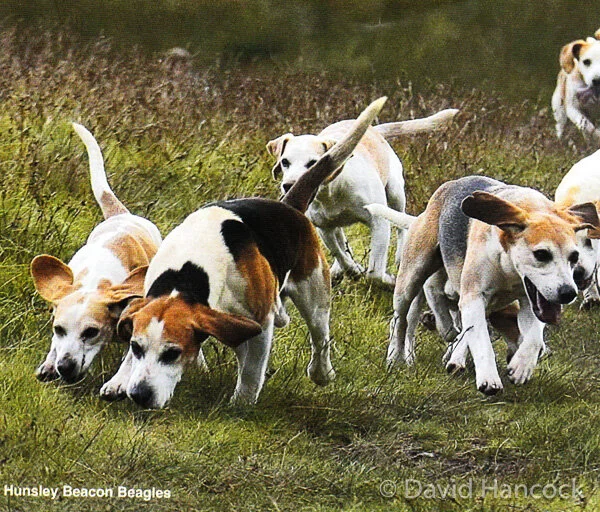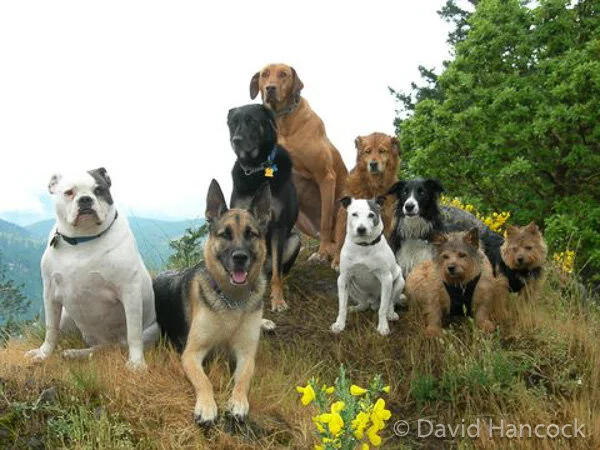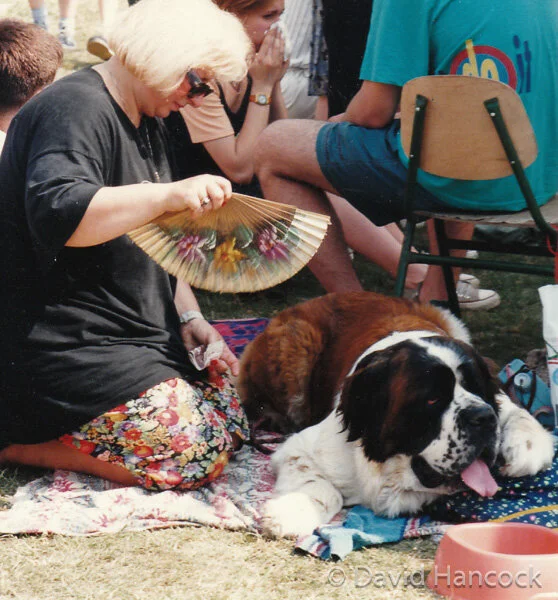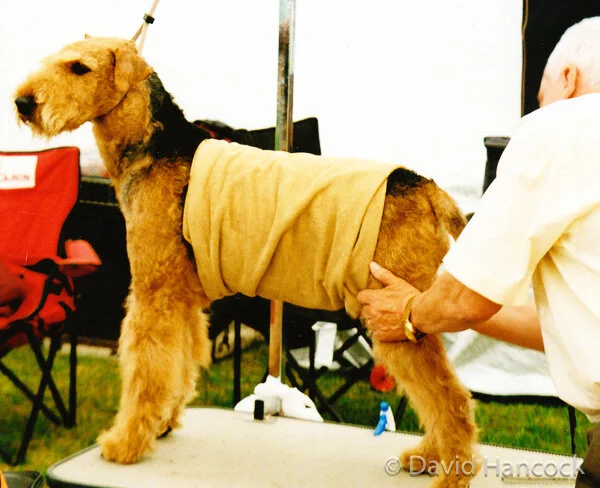1225
GIVE THEM RESPECT – think of their needs
By David Hancock
I have met some quite delightful people, out walking their dogs, when either walking mine or just taking exercise. Sadly, just occasionally, I also come across dog-owners who simply have no respect for their dogs – or any deeper feeling for their needs. In The Times of Saturday the 18th of May 2019, there was an interesting article headlined “Why owning a dog is in your bones”, by their science correspondent Rhys Blakely, quoting a recent study by a Swedish professor, Tove Fall. This study, which involved over 35,000 pairs of twins, found that genetic make-up had a significant influence in whether or not they owned a dog. Apparently, an affinity for dogs is a trait like any other. Professor Fall believes that a strong disposition towards having a dog may have sprung from primitive needs for their hunting, scenting and herding skills. This however is all about feeling a need to be supported by dogs rather than just a liking for their companionship. Sometimes there can be a distinct separation between a need to take from dogs rather than give to them – their usefulness mattering more than their longings. I have long considered the partnership between man and dog to be more rewarding than mere ownership. Dogs deserve our respect; the bond is enhanced when not just we admire their skills and enjoy their companionship but have regard for their simple needs too.
We often hear a great deal about 'respect' these days, from such widely separated sources as a Cabinet Office initiative, several 'rap' artists and the political party once formed using that name. We hear too from similarly separate sources about Britain being a nation of dog-lovers. As the dog-hoarders, puppy-farm owners and cruelty-convictees demonstrate, loving dogs can be misapplied; respecting dogs brings a whole new dimension, across a wide spectrum. We all know of owners who love their dogs so much they never take them for a walk! We know too of owners literally feeding their beloved but overweight dogs into an early grave. We read of a charity established to prevent cruelty to dogs pursuing policies which can only lead to the premature death of dogs – the weirdness of this being magnified when so-called ‘experts’ come forward to claim that a dog’s anatomy decides its behaviour. Even a professed strong affection for dogs will never match a genuine respect for them.
As an individual visitor I no longer enjoy Crufts; for me it should be a livestock show, with the canine world showing off the excellence of its product, as breeding success. The 'fluffy doggie' syndrome, with gushing commentators fawning over dogs as living toys or substitute children, leaves me cold. With this approach a lack of respect soon follows. The living toy which chews your favourite shoes, or the substitute child which howls every time you leave it, can soon be moved on to a new home. The distinguished veterinary psychologist Michael W Fox, of Washington University has written, on this subject: "...we have the ideal substitute in the form of toy breeds, such as the Poodle, the Pekingese and some of the new hybrids, such as the 'Cocker-poo', 'Puli-poo' and the 'Peke-poo'! These animals are infantile; in many ways they are extremely dependent and do make ideal child substitutes. We might ask if it is fair to use animals as emotional crutches to fulfil human needs and longings and to expose the animal to certain stresses which might make its life stressful." Dogs deserve better than being used as emotional crutches!
Dogs have distinct needs and unless we respect those needs, we cannot provide a fulfilling satisfying life for them. We should respect them for what they are and for what they can do. Their needs and the fulfilment of them should concern us. There is a memorial to the horses lost in the Boer War at Port Elizabeth, which has the inscription: "The greatness of a nation consists not so much in the number of its people or the extent of its territory as in the extent and justice of its compassion." Compassion comes from respect in the heart. My father used to speak with sadness of the 'sausage trains' that once conveyed our broken-down horses to the Belgian abattoirs during and especially after the Great War. But the disposal of racing Greyhounds today leaves much to be desired. They are allowed to live and die entirely on our terms.
It is vital that those who use dogs for sport possess and display appropriate respect for their dogs. There is a terrible story, for me, of a 19th century fox hunt, in which a very determined hound, convinced it was on the right line, disobeyed the whipper-in and received such a severe blow to the head that an eye was dislodged. Despite this, the hound nevertheless staunchly kept to the scent he had identified, with the dislodged eye hanging down out of its socket - and was proved right. The whipper-in had seen a fox up ahead but not the one being originally pursued. The severely punished now one-eyed hound had just not been respected, either as a proficient hound or as a sentient creature. Its skills at using air and ground scent or ‘nose’ had been more accurate than the human eye but had not been respected by a cruel as well as a very foolish and surprisingly handler.
There is an account too of an early 20th century scene in which a terrier was badly bitten by a furious badger, which was fighting for its own life. The account reads: "...a small white bitch bitten through the chin. She sat hunched up and shivering, while the blood dropped steadily from the wound...the bitch was faint from loss of blood and exhausted - a miserable sight...I approached the farmer and said: 'Your bitch is bleeding pretty freely, why not wash out the wound, it looks almost like an artery.' 'Oh! She'll do till I get home' he replied.” Not much compassion and no respect at all for the dog from that owner. We quite rightly condemn badger-baiting or digging but are apt to overlook the cruelty to the dogs involved, both badger and dog are victims.
The 21st century will in time I hope lead to not just greater respect for dogs but for a more enlightened, more humane concept of their needs. It is surely questionable for us to breed dogs purely to a design which pleases us but handicaps them or to breed them so carelessly that their lives are shortened and their quality of life diminished. Which is crueller, knocking a hound's eye out with the stock of a whip or breeding from faulty stock which produces progeny blind in both eyes? Which is less heartless, failing to staunch the flow of blood from a wounded terrier's jaw or breeding a dog with such a truncated jaw that it cannot breathe properly throughout its life? At what stage do we admit that a dog's well-being is infinitely more important than breed exaggerations, so often euphemistically dubbed 'characteristics'?
Last year I followed a small child into a championship dog show and heard the child observe, with the insouciant innocence of her age, when walking behind a pair of Dachshunds, "why don't those dogs have legs?" The owner of the dogs turned round, amused, and responded kindly with "It's because they have to work under the ground". But the owner almost certainly knew that in past times the Dachshund displayed daylight under its sternum and that the lack of leg length in the breed is a relatively recent feature. In time, exaggerated features exaggerate themselves; but at what stage does a Breed Club concede that such a degree of exaggeration penalises the dog? Individual dogs are more important than breed features that deny the dog a stress-free spine and a torso clear of the ground. We have to respect the dog before us not the design of the day.
A few years ago, a neighbour of mine had a charming Basset Hound that used to howl with the pain from its legs. The dog wasn't old and had not been in an accident. The vet's report on the dog revealed deformities of the distal radius, ulna and carpal joint, adding that such disabilities are frequently seen in the breed, together with a high incidence of shoulder and foreleg lameness. The dog had the heavily-boned, extremely bent front legs favoured in the show specimens, a breed feature not sought in the hunting Bassets; the ‘English’ Basset, benefitting from Harrier blood, does not display exaggeration. Which breeder is perpetuating the true Basset? Does each breed have to tolerate unacceptable exaggerations which inflict distress on their dogs? Modern type doesn't automatically mean true type; in a closed gene pool, exaggerations exaggerate themselves. Which should prevail, a loyal if misguided allegiance to contemporary breed-type, or simple humanity towards the dog? Do you respect the Breed Standard ahead of your dog’s well-being?
If you favour evolution as opposed to revolution in achieving change, then action has to come from within dogdom. Breed clubs have to change, registries have to change. The European Convention on the ethical treatment of animals could one day be ratified here and a heavier hand demand an end to harmfully-constructed dogs. How much better for a Breed Club, backed by a visionary registry, to say: this is our breed and we respect it, we have lost our way, it is best if we put things right. Judges can of course play a role too; the degree of exaggeration in any breed soon becomes a fault. But coordinated action will always achieve faster progress than a series of unilateral measures. Time perhaps for the Kennel Club to step forward!
But I believe it to be important too to respect the dignity of dog. Dogs know when they are being humiliated. I can still recall feeling uncomfortable when observing a tiny Yorkie being painstakingly groomed for an hour - at our village dog show! Most dogs want to please their owners; this one stood still and just endured the bizarre endless combing and preening - even for such a casual inconsequential low-key event. But the demeanour of the dog told its own story, the little obedient dog just didn't want to be there or to be subjected to this treatment. The owner had absolutely no respect for his dog, was just lost in his craft, his presentational desires. I have that same uneasy feeling when I see Beardies subjected to seemingly endless grooming at Crufts or Afghans in their show protective clothing or dogs with bibs. These are not animated warm-blooded display items but dogs with pride and feelings.
I have a neighbour who buys her dog expensive coats, of both summer and winter weight, and proudly parades the dog in them like a trophy. When I gently scold her, she tells me how much pleasure she gets from buying her pet these presents. The dog has a perfectly good weatherproof coat, comes from a working line of small terriers, and looks decidedly self-conscious when eyed derisively by the local gundogs. The dog has no need whatsoever for these garments, but his owner has an irresistible desire to give it gifts. This may be harmless but to me it shows a lack of respect for the dog; its feelings matter more than hers. This desire to spoil a 'much-loved' pet leads to overfeeding, feeding between meals and the tolerating of unwanted behaviour, none of these things good for the dog. It was always interesting to watch coursing Greyhounds in their coats; they seemed to know that, when they are hot on a freezing day, they benefit from such care as they cool down. Sled-dogs were developed for severe weather and don't seem to need similar protection. Inflicting needless garments on dogs is so often done because it suits the owner rather than the dog. The dog's feelings are not respected. When we regard dogs as pampered playthings or warm-blooded ornaments, we soon lose sight of their simple basic needs. Dogs need to be walked, they need to be fed, but not overfed, and they thrive on companionship. Give them time, not coats!
Michael Fox, a distinguished animal scientist, once wrote: "Only when man learns to see the dog for what it is and himself for what he is can he free his dog from some of the frustrations of the modern world." Dogs suffer considerably from the frustrations of the modern world. We breed into them strong instincts and then deny them outlet. We stop superlative hunting dogs from hunting and discourage gifted herding dogs from herding. We develop the best earth-dogs in the world and then deny them any scope for their skills. No wonder dogs feel frustrated. Their spirit is being slowly sapped. Every setter or Pointer owner should ensure their dogs savour air-scent and sniff the wind. Every scenthound owner should ensure that their dog comes across exciting ground scent. Every sighthound should be encouraged to really stretch its long legs, just race with sheer release. We really must learn to respect their needs. We might be better people as a result!
B M Levinson, professor of psychology and the director of a child pyschiatry unit, wrote thirty years ago: "I would like to state that in the year 2000, man will be able through the medium of pets to regain his sensitivity to events occurring in the animal world and to enhance his empathy with all living creatures. He will rediscover the semantic symbols which he used aeons ago to describe his emotions towards nature and towards pets. He will in a sense be a more complete human being." By respecting our dogs, which is more demanding than loving them, we become more rounded people, I am sure. Down the years, my dogs have taught me a lot about dogs and quite a lot about myself.
But in becoming more respectful towards our dogs and respecting their needs, we need to rattle a few cages. Breeds are important but they are not more important than healthy long-lived pet dogs. A closed gene pool should never instil closed minds. When a closed gene pool is serving a breed and is working, then that is acceptable. But when we breed faulty dogs from faulty genes we need to free our minds and put the interests of dogs, not us, first. We must ask ourselves the key question, do I respect my dog or just my own need for a dog? Dogs have dignity; we need to respect that. Dogs have basic needs of their own, quite distinct from our need of them. The happiest dogs are not the most pampered or the most indulged but those essentially treated as dogs. It is shameful to accept distressing anatomical features in breeds of dog just because those features allegedly constitute breed-type. The quality of life of each individual dog matters more than any breed point. Accepting that is a major way of showing respect.








